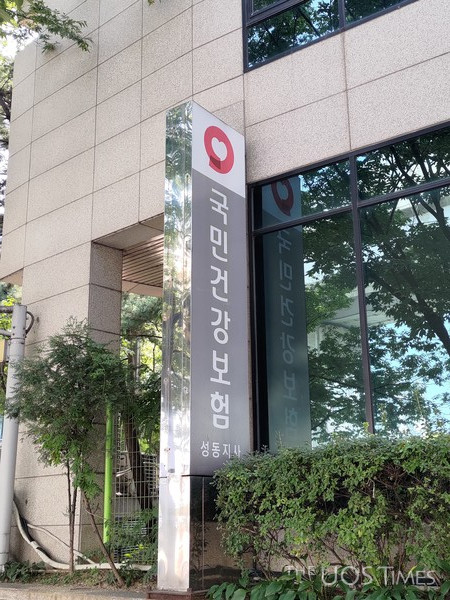
Koreans are proud to have National Health Insurance in their social security system. The majority of people can pay for medical care through public insurance. However, there is a loophole in the system which allows foreigners to receive wrongful coverage.
National Health Insurance System in Korea
Korea is known to have one of the most advanced and stable public health insurance systems worldwide, which allows people to go to hospital and spend the least amount of money possible. Medical diagnosis and treatment for common cold, for example, usually costs less than 10,000 KRW in Korea, as the patient only pays 40 percent of the bill. The remaining 60 percent is covered by National Health Insurance. The copayment is even lower for hospitalized patients, who only pay for 20 percent of the cost of the relevant medical services.
The reason why the hospital fee is affordable is that it is compulsory by law for every citizen to get insured by NHIS. This means every working person in Korea must pay a certain portion of their income to national insurance. The legal minors and the elderly who lack the income to pay for themselves can be registered as dependents. The dependents can be insured by their family member’s insurance account.
For some illnesses, the insurance covers a limited number of treatments. For example, dental scaling can be covered once a year, and artificial insemination is covered up to 12 times per year. However, there is no limit on the amount of insurance coverage. No matter how much one pays, he or she can take an unlimited amount of coverage from the insurance, as long as their conditions are covered by the national insurance.
Insurance for Foreigners in the Past
Most of the insurance systems worldwide bear the problem of adverse selection and moral hazards. National Health Insurance tried to solve the problem by forcing everybody to subscribe to the insurance. The compulsory subscription and unlimited amount of coverage has not been an issue, since the national insurance covers most common diseases, and any of the working people who paid the premium can receive services when they get sick. However, with the advancing globalization and more foreigners entering Korea, there have been complaints about foreigners getting fraudulent reimbursement.
According to Yonhap News, total hospital expenses incurred from foreign patients were 553 billion KRW in 2016. The number is over 100 billion KRW more than the total premium paid by foreigners. This suggests that foreigners received significantly more medical treatments than the insurance fee they had paid. This also means that the Korean people were paying for the gap between the expense and premium.
Patients from nearby countries, and even from as far as the U.S, entering Korea only to get medical treatments and benefit from the insurance made matters worse. Before 2015, it was relatively easy, because foreigners who were employed in Korea could get registered with the National Health Insurance as soon as they arrived. Some patients made fake employment, and made a pretext of it to get registered to the insurance, leaving Korea as soon as they received the treatment; hence, the complaints on fraudulent reimbursement were raised.
Insurance for Foreigners of Today
The Ministry of Health and Welfare (MOHW) took the health insurance deficit as a serious problem and made regulations on foreigners’ registrations. In 2015, the employment visa was excluded from one of the three eligibility for immediate registration upon entering Korea, to prevent the aforementioned abuse. The other two eligibility, marriage and student visa, remain. In 2019, the MOHW extended the minimal period of stay for registration from three months to six months. As of now, every foreigner who has stayed for six months must subscribe to the National Health Insurance.
Thanks to the change in regulations, there was a surplus in medical finance for foreigners. From 2018 to 2020, insurance premiums paid by foreigners were 1.5 trillion KRW in total, 580 billion more than the medical expense. Although COVID-19 caused a minor deficit in 2020, there has been an increase in the surplus since 2018. It is safe to say that foreigners are contributing to the budget stability of the National Health Insurance
Nevertheless, some problems remain. Although there is a “six-month rule” on employment registration, no such rule exists on dependent registration. By law, the spouse and the underaged children of foreign subscribers are eligible to get registered as dependents upon their arrival. This enables foreigners from nearby countries to get their spouses or children to receive insurance benefits without extra premiums. There have also been cases where foreign subscribers made false registration. Acknowledging the loophole in the system, the MOHW stated on August 24 to enforce the condition for dependent registration.
Nobody should bargain with life or health; with health “service,” however, somebody should. The healthier the people get, the bigger the bill becomes. It is expected for the government to make a detailed change in the policy to minimize fraudulent coverage and let the money benefit those in urgent need.

